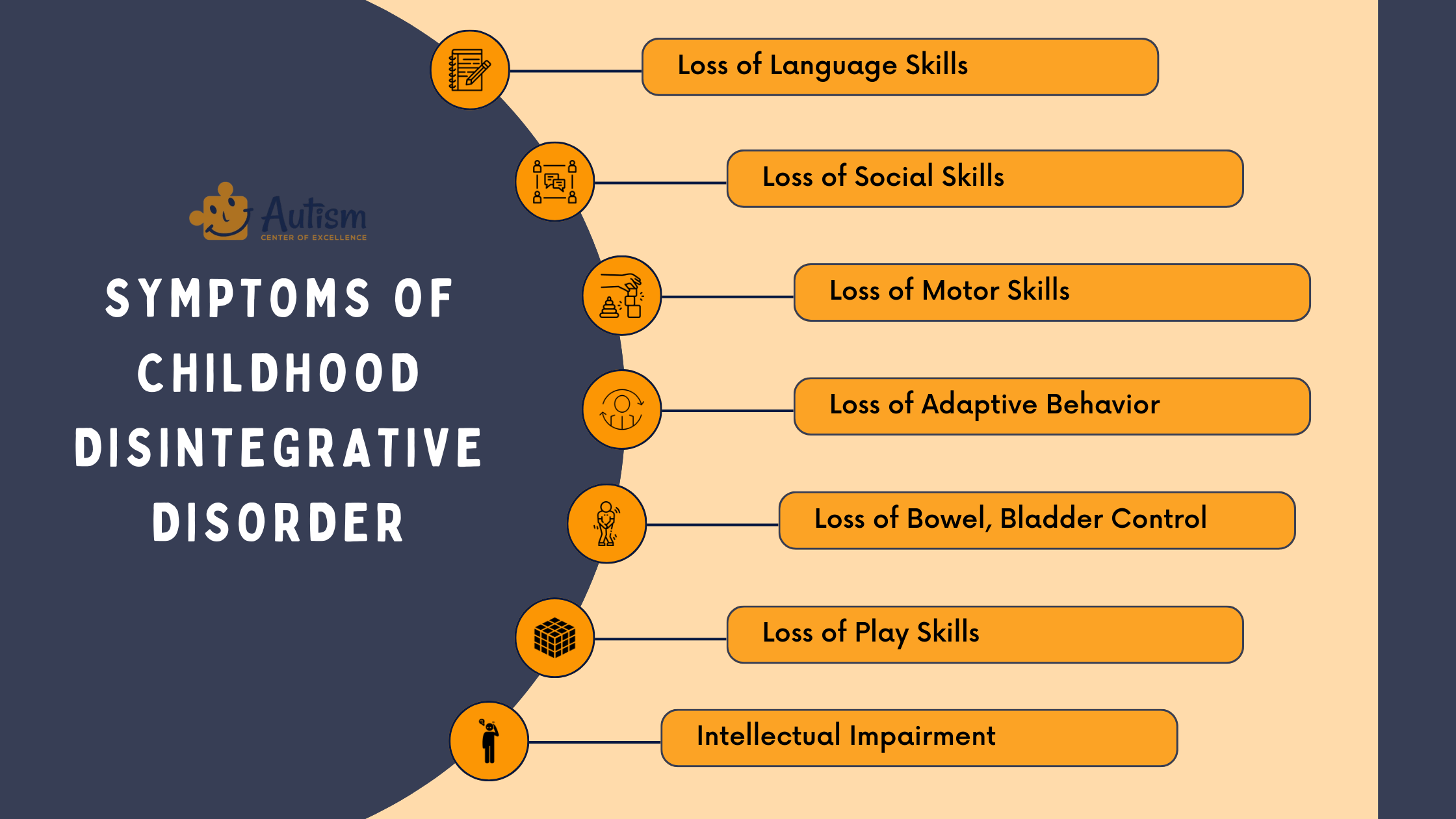Navigating sensory overload with support from Autism Spectrum Therapies professionals
Navigating sensory overload with support from Autism Spectrum Therapies professionals
Blog Article
Secret Indications and Signs to Identify in Individuals With Behavioral Autism
When you experience someone with behavior autism, identifying crucial signs and symptoms is crucial. In addition, sensory level of sensitivities can lead to overwhelming experiences.
Obstacles in Social Interactions
When you connect with a person on the autism spectrum, you could observe they battle with social signs and communication. These obstacles can make social interactions feel overwhelming for them. You might see them preventing eye call or standing as well close or also far during discussions, which can create misunderstandings. They could not notice body language or facial expressions, making it harder for them to gauge how others are really feeling.
Additionally, you might find that they like regimens and familiar settings, which can restrict their willingness to participate in brand-new social scenarios. They may chat about their rate of interests in wonderful detail without discovering if you're interested when they do involve. This can lead to one-sided conversations that leave you feeling detached. Recognizing these challenges can help you approach interactions with compassion and perseverance, cultivating a more comfortable setting for both of you.
Problem With Verbal and Non-Verbal Interaction

Non-verbal interaction can be much more tough. You might see an absence of eye get in touch with or limited use gestures, which can make communications really feel uncomfortable. Faces might not constantly align with the discussion, resulting in complication regarding their feelings. Identifying these signs is crucial, as it assists you better assistance and engage with people on the autism range. By comprehending their communication obstacles, you can foster a lot more meaningful connections and supply a more helpful setting.
Recurring Actions and Regimens
Communication difficulties often accompany other indications of autism, such as repeated actions and a strong preference for routines. You might discover that people with autism usually engage in specific, repetitive actions, like hand-flapping, shaking, or duplicating expressions. These actions can offer convenience and a feeling of control in an often overwhelming world.
Routines are equally essential; numerous individuals flourish when they comply with a structured routine. You might discover that modifications to these regimens can cause considerable distress. If they have a daily routine of consuming breakfast at a specific time or following a certain course to institution, any disturbance can trigger stress and anxiety.
Recognizing these patterns helps you recognize their actions and give assistance. By fitting their need for regular and allowing recurring activities, you can produce a more comfy atmosphere that relieves their obstacles.
Sensory Level Of Sensitivities

Typical Sensory Triggers
Sensory sensitivities can considerably impact daily life for individuals with autism, as particular stimuli typically set off frustrating reactions. Typical sensory triggers include loud sounds, brilliant lights, and solid smells. Comprehending these triggers can assist you manage your environment much better.
Behavioral Reactions Clarified
Understanding your behavior actions to sensory level of sensitivities is crucial, as they usually expose exactly how you interact with the globe. You may notice that particular noises, lights, or structures bewilder you, leading to anxiousness or pain. When faced with these stimulations, you may withdraw, cover your ears, or also respond aggressively. These responses aren't simply peculiarities; they're your way of dealing with overstimulation. You may additionally discover on your own seeking specific sensory experiences, like deep stress or quiet settings, to aid ground yourself. Identifying these patterns assists you understand your demands far better and can direct just how you interact them to others. By recognizing your sensory sensitivities, you can function in the direction of creating an atmosphere that really feels a lot more manageable and comfy for you.
Coping Approaches Overview
Acknowledging your sensory level of sensitivities is just the first action; now it's time to explore coping techniques that can help you take care of those experiences properly. Beginning by creating a sensory toolkit tailored to your needs. Developing an organized regimen can look here also provide predictability, reducing anxiousness around sensory overload.
Limited Passions and Focus
While numerous people establish a vast variety of interests, those with autism frequently show restricted rate of interests and an intense concentrate on particular topics. You may notice that a person with autism can spend hours diving right into their favorite subject, whether it's a particular kind of train, a certain film, or a clinical idea. This extreme emphasis isn't just a leisure activity; it can end up Continued being a main part of their identification and social communications.
You may locate that discussions rotate around these interests, and they may struggle to engage in more comprehensive subjects. By recognizing and acknowledging these restricted rate of interests, you can cultivate an encouraging setting where they really feel valued and comprehended, allowing for even more purposeful connections and interactions.
Emotional Guideline Difficulties
Individuals with autism usually deal with challenges in emotional guideline, which can be affected by their intense concentrate on particular rate of interests. You might notice that when a person is deeply participated in a preferred task, they can experience solid feelings, whether exhilaration or irritation. This strength sometimes makes it hard for them to move equipments or handle their sensations when points do not go as intended.

Irregularity in Developing Turning Points
When it comes to developing milestones, you'll notice that people with autism often show a wide variety of irregularity. You might see a kid succeed in language skills but struggle with social communications.
It's essential to acknowledge that each individual's journey is unique. Observing these patterns can help you recognize their strengths and requires better.
Often Asked Concerns
Exactly How Is Autism Identified in Kid and Grownups?
To identify autism in youngsters and grownups, web professionals review actions, interaction skills, and social interactions. If a specific meets the criteria for autism range disorder., they frequently utilize standardized tests, meetings, and observations to identify.
Exist Various Types of Autism Spectrum Disorders?
Yes, there are different kinds of autism spectrum disorders, including Asperger's syndrome and prevalent developing disorder-not or else defined. Each type varies in seriousness and qualities, so recognizing these distinctions can aid you better assistance people with autism.
What Therapies Are Reliable for Individuals With Autism?
When considering effective treatments for individuals with autism, you'll discover alternatives like Applied Actions Evaluation, speech therapy, and work therapy. Each technique can aid enhance interaction, social skills, and everyday operating customized to private requirements.
Can People With Autism Lead Independent Lives?
Yes, people with autism can lead independent lives. With the best support, abilities training, and resources, you can assist them create self-sufficiency, manage day-to-day tasks, and grow in various settings, promoting their self-reliance.
How Can Families Support Loved Ones With Autism?
You can sustain your loved ones with autism by producing a structured environment, urging their interests, exercising perseverance, fostering interaction, and promoting social abilities. Celebrate their success, despite exactly how tiny, and develop a helpful neighborhood.
Although several individuals on the autism spectrum can utilize and recognize language, they often encounter significant obstacles with both non-verbal and verbal communication. Acknowledging these indicators is necessary, as it aids you far better support and engage with individuals on the autism spectrum. You may notice that individuals with autism typically engage in particular, repeated activities, like hand-flapping, shaking, or duplicating phrases.Sensory level of sensitivities can substantially impact daily life for people with autism, as certain stimulations typically cause overwhelming responses.When it comes to developing turning points, you'll discover that individuals with autism commonly show a vast array of variability.
Report this page